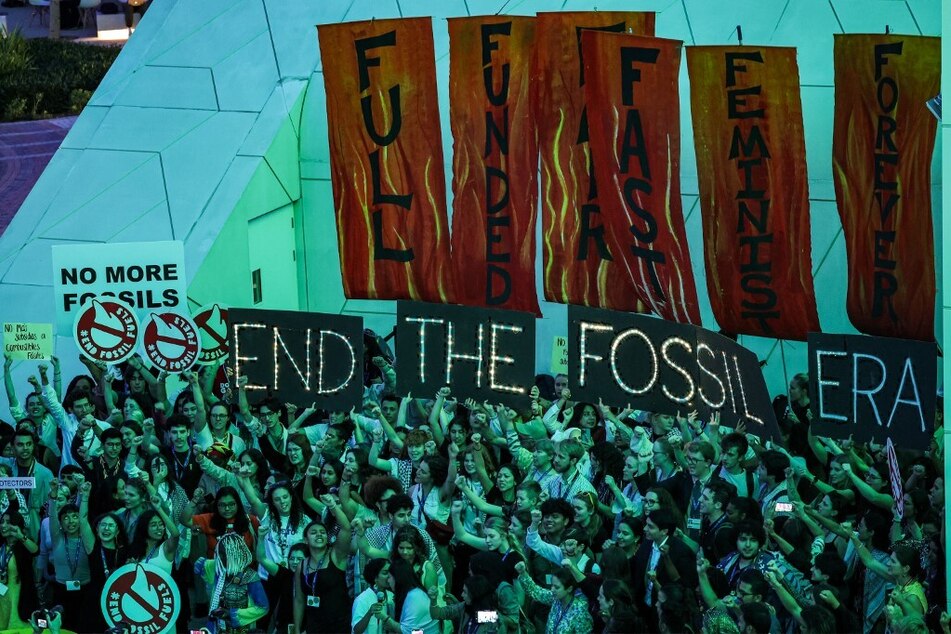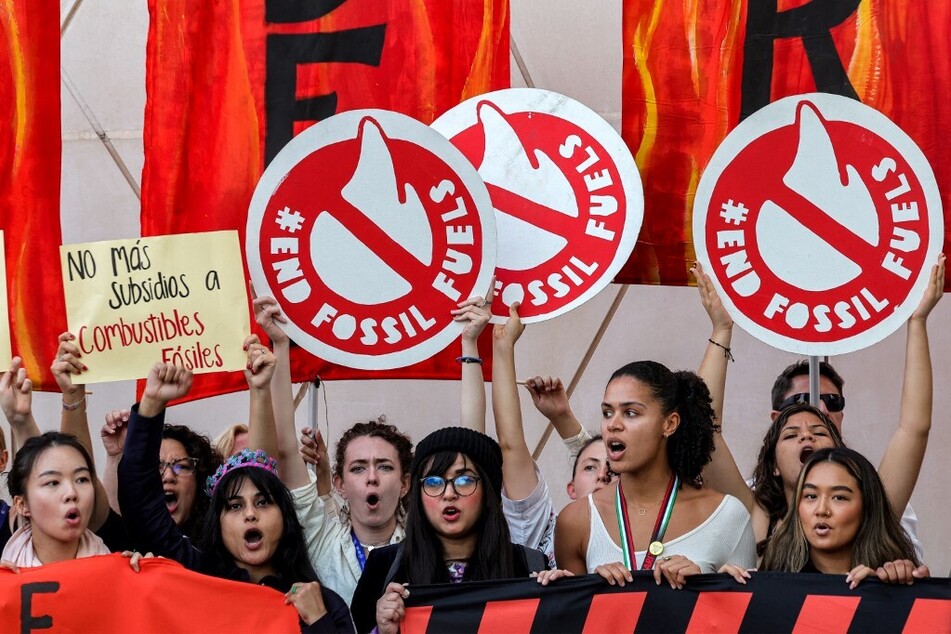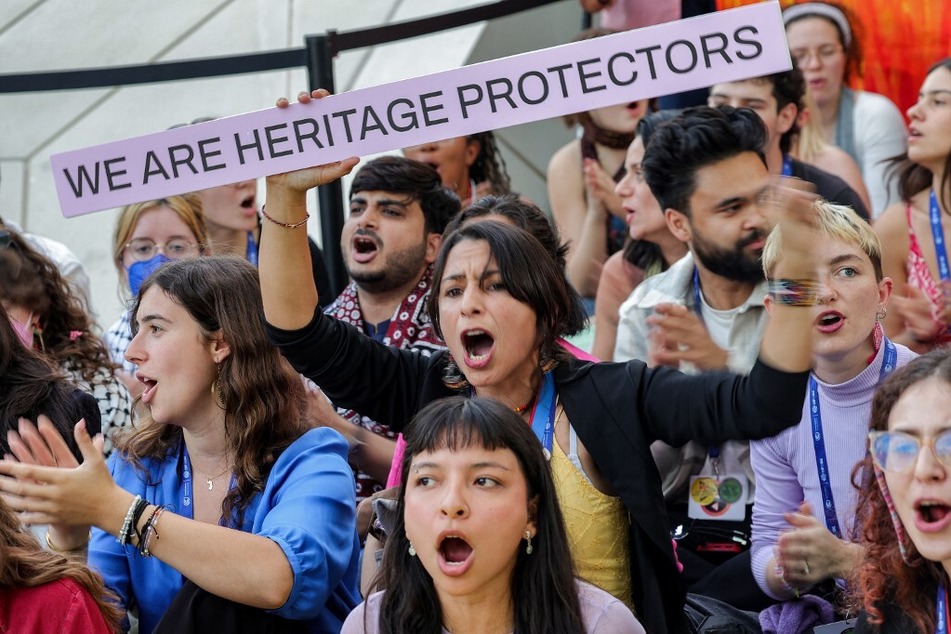COP28: UN summit compromise calls for shift away from fossil fuels
Dubai, UAE - A draft UN climate deal called Wednesday for the world to transition away from fossil fuels, in a last-ditch bid to break a deadlock between nations seeking a phase-out from oil, gas, and coal and Saudi-led crude producers.

Following all-night negotiations, the text proposed by the Emirati presidency of the COP28 summit in Dubai would, if adopted, mark the first time that all fossil fuels are addressed in the 28-year history of international climate conferences.
The text calls for "transitioning away from fossil fuels in energy systems, in a just, orderly and equitable manner, accelerating action in this critical decade, so as to achieve net zero by 2050 in keeping with the science."
While the document does not mention the "phase-out" demanded by Western countries and low-lying island nations most vulnerable to rising seas and tropical storms, the language is stronger than a previous draft that was roundly rejected.
The COP28 presidency scheduled a plenary session at 10:00 AM in the hope of the text receiving consensus approval from nearly 200 nations.
Governments did not immediately react, but verdicts from climate activists were mixed, with some saying it was an important step forward while others were disappointed about its lack of a phase-out mention.
The text "sends a strong signal that world leaders recognize that a sharp turn away from fossil fuels toward clean energy in this critical decade and beyond, aligned with the science, is essential to meet our climate goals," said Rachel Cleetus, policy director at the Union of Concerned Scientists.
Stephen Cornelius of the conservation group WWF voiced disappointment at the lack of a full-on "phase-out" but said the draft deal "would represent a significant moment."
Stronger calls

The two-week conference in Dubai was supposed to end Tuesday but went into overtime as nations struggled to agree on what to do with fossil fuels, the main culprits of the climate crisis.
The biggest-ever COP meeting hosted more than 88,000 people, including a record number of lobbyists from the fossil fuel industry.
COP28 president Sultan Al Jaber, who heads the United Arab Emirates' national oil company, was viewed with suspicion by climate campaigners worried that the fossil fuel industry would prevail again.
Jaber had proposed a draft on Monday that was roundly rejected as too weak for merely suggesting that nations "could" reduce the consumption and production of fossil fuels, among other options.
Island nations, backed by Western powers, responded that they would not sign their own "death warrant," forcing Jaber back to the drawing board. He held talks deep into the night with negotiators from across the world in his office in the sprawling Expo City complex.
European officials had signalled that they were willing to find compromise language while US climate envoy John Kerry said "progress" was made in the talks.
The new draft explicitly "calls on" all nations to contribute through a series of actions, including transitioning from fossil fuels. While not using the term "phase-out" on fossil fuels, it endorses work towards a phase-down of "unabated coal power" – meaning that coal with carbon capture technology to reduce emissions, panned by many environmentalists as unproven, could continue.
It also calls for "phasing out inefficient fossil fuel subsidies that do not address energy poverty or just transitions, as soon as possible."
The text is a "stronger signal than the previous draft text. However, it opens the door for dangerous distractions such as carbon capture," said Caroline Brouillette, executive director of Climate Action Network Canada.
"Super-majority" vs. OPEC nations

The 2015 Paris summit endorsed checking warming at 1.5 degrees Celsius – a goal repeated in the latest draft, but which critics say is virtually impossible without serious efforts to curb oil, gas, and coal.
More than 130 countries from Europe, the Pacific, the Caribbean, and the Americas, including Brazil and the United States, joined forces to call for an exit from oil, gas, and coal.
EU climate chief Wopke Hoekstra said a "super majority" of the nearly 200 countries in the talks wanted stronger action on fossil fuels.
Saudi Arabia, Kuwait, and Iraq have been the most vocal opponents of a phase-out, and the OPEC oil cartel had urged its members to block any deal targeting fossil fuels.
At an energy conference in neighboring Qatar on Tuesday, Kuwaiti oil minister Saad Hamad Nasser Al Barrak said a phase-out was a "racist and colonial" proposal that would wreck economies in the region.
Iraq's oil minister, Hayyan Abdul Ghani Al Sawad, said: "Fossil fuels will remain the major source of energy in the whole world."
Cover photo: GIUSEPPE CACACE / AFP

